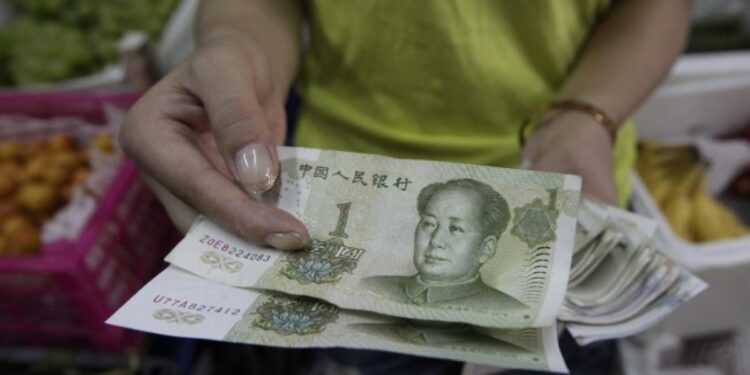China’s central bank announced a moderately accommodative monetary plan aimed at boosting domestic demand to stimulate growth, days after President Xi Jinping called for more effective macroeconomic policies.
Beijing struggled last year to pull the economy out of recession caused by the real estate crisis, weak consumption and high government debt.
Officials unveiled measures aimed at boosting growth, including lowering interest rates and easing restrictions on home purchases, but economists warned that there was still a need for more direct stimulus.
Promote recovery
The People’s Bank of China said in a statement that it “will implement a moderate accommodative monetary policy… to create a good monetary and financial environment to promote sustainable economic recovery.”
The statement issued yesterday, Saturday, indicated plans to reduce interest rates and the mandatory reserve ratio, which is the money that banks must keep instead of lending or investing it.
He said the changes would be made “at the appropriate time” given conditions at home and abroad.
The People’s Bank of China stressed the need to eradicate corruption, which indicates the continuation of the campaign against corruption in the Chinese financial sector.
He added that he would continue to support local governments to overcome their debts through “financial support.”
The statement pointed out that these measures aim to “prevent and resolve financial risks in key areas, deepen financial reform… and focus on expanding domestic demand.”
The bank’s announcement came after a two-day meeting of the Monetary Policy Committee in the capital, Beijing.
Beijing was targeting growth of about 5% in 2024, and Xi expressed his confidence in achieving it, but economists see this as difficult.
The International Monetary Fund expects China’s economy to grow by 4.8% in 2024 and 4.5% in 2025.
More proactive policy
It is noteworthy that the Chinese President called at the end of last year to adopt a more “proactive” macroeconomic policy during the year 2025, at a time when Beijing continues its efforts to emerge from the slowdown of the second largest economy in the world.
The Chinese economy faces the risk of a collapse in prices as a result of a severe real estate crisis and consumption levels much lower than the period before the Covid-19 epidemic.
In recent months, Beijing has doubled its economic recovery plans, especially by lowering interest rates and increasing the debt ceiling for local governments.
However, economists consider it necessary to take financial recovery measures aimed directly at supporting consumption, in order to maintain economic growth.
In early December, Xi made pledges in this regard, stressing his intention to “soften” Chinese monetary policy next year.
“We must maintain the general guideline of stability while seeking progress” and “accelerate the adoption of a new development model,” the president said.



